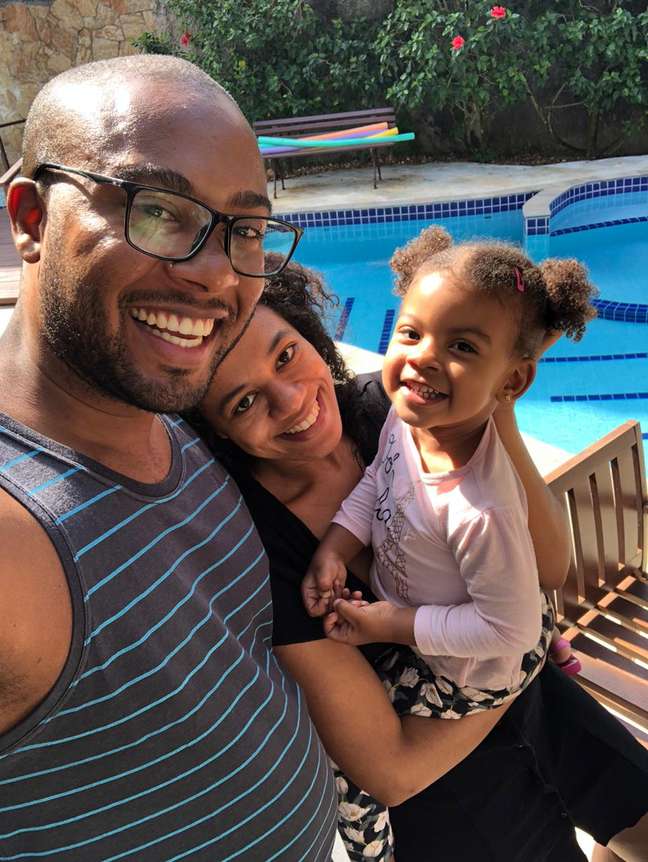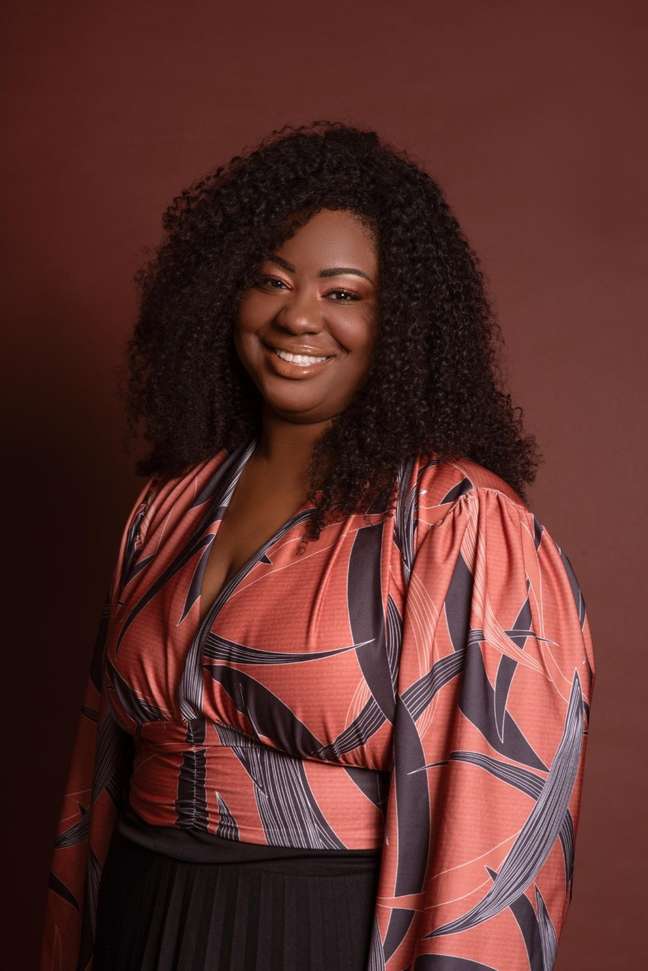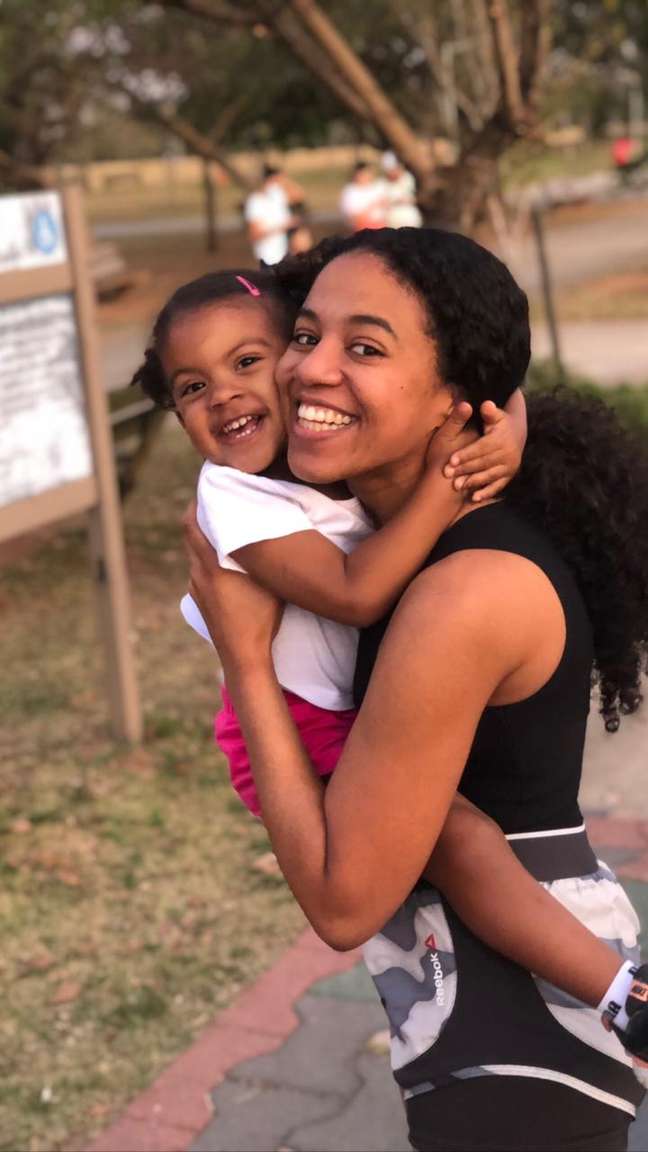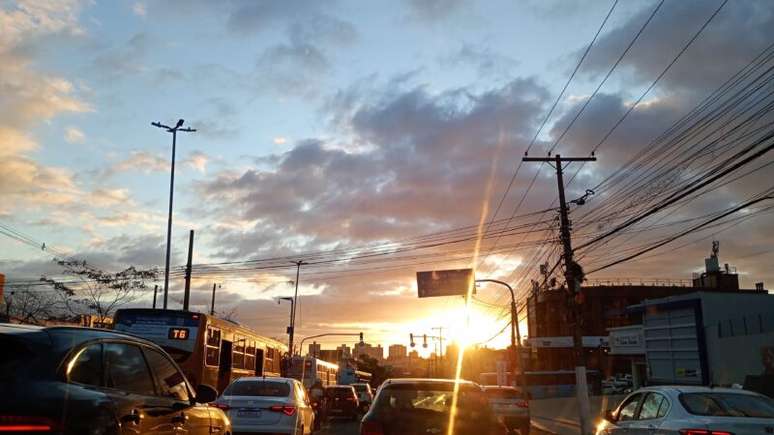In the month of Black Consciousness, a sad story that serves as a warning: only information saves us from racism and one of its consequences in some of the most important moments in a woman’s life: pregnancy and childbirth. No more obstetrical violence!
Thais Machado, educator, 29 years old, preparing for the day he would finally meet the love of his life, Maya. She had already been waiting for 41 weeks and 4 days when she arrived at the maternity ward, after respectful prenatal care at Casa Angela, located south of São Paulo (SP). The birth could not take place in the delivery room because the pregnancy was over 41 weeks and her mother still did not feel contractions. It would be necessary to resort to an induction. Thais expected to have the happiest days, but on the contrary, she found disrespect and pain.
+ We’re almost there: See signs that delivery is near
“It was the opposite of what I experienced at Casa Angela. Already at the reception at Amparo Maternal (maternity located in Vila Mariana, in the south area of São Paulo, SP), I felt very cold,” she said, in a exclusive testimony to BabyHome. Fortunately, contrary to her first impressions, Thais was seen by a very attentive obstetrician, according to her. The healthcare professional read the birth plan, written with all the wishes of the pregnant woman, and approved it. “We started doing the induction and I didn’t go into active labor. Quite the contrary. Maya went into fetal distress and the midwife who accompanied me said I would have to have a C-section,” she recalls. The midwife said that she was very sorry and that she would try to follow the delivery schedule, as requested by Thais. Ufa!
However, after that, the reality was very different. A doctor and a doctor who had never seen or spoken to the pregnant woman performed the operation. They didn’t say a word to the patient. “They talked about everything but me. They didn’t ask me anything about my life. They talked about travel…”, she recalls painfully.
Before that, two other moments had already deeply disturbed Thaís, who knew that what she was going through had a name: obstetric violence. During the preparation, one of the nurses asked, scornfully, while she suffered the indescribable pain of the contractions she induced: “Which hurts more, the tattoos you have or these contractions?”
Even Thais were shaved without even being told what was being done. “I knew I didn’t need to. At Casa Angela they had told me that it was not necessary to shave. They hadn’t even warned me about the procedure. I only noticed it many hours after Maya was born, when I was in the shower,” she is indignant.
+ How to make labor smoother and relieve pain
And it didn’t end there. The immediate postpartum period also brought difficult times. While waiting for the anesthesia to recover, in one room, Maya’s cradle was placed next to her bed. But not close enough for Thaís to touch her daughter. “The nurse that was in the room, she worked, she did different things. Maya cried a lot. I couldn’t reach it. I asked her to speak to this nurse. I said, “Please can you bring her crib closer? I just want to pet her, she’s crying a lot.” She just said, ‘If you want to wait!’ (with coarse, impatient intonation) So, she did all her work, the shift was over and she didn’t bring the cradle to my side.
Black mothers experience more obstetric violence
Unfortunately, Thaís is not alone in this. Obstetric violence affects many mothers, sometimes without them realizing it. The numbers get even bigger when we talk about black mothers.to. According to a study published by the Oswaldo Cruz Foundation (Fiocruz), the color of painby researcher Maria do Carmo Leal, the possibility that black women will not receive anesthesia, for example during childbirth, is 50% higher than white women.
“There is still the racist concept that black women are more resistant to pain”, recalls the gynecologist and obstetrician Larissa Cassiano, of Theia, a clinic specializing in the health of pregnant women, in São Paulo (SP). “Some theories say that at the time of enslavement the strongest slaves were those who managed to arrive. This is because during the journey by ship, which lasted many days, they did not succeed. Many died from lack of hygiene, disease, dehydration, hunger So there was this myth that the slave is stronger and that racism perpetuates, making black women suffer various types of violence,” explains the doctor.
+ Obstetrician: Follow these steps to choose a good professional
Again according to Fiocruz’s research, 10.7% of black women do not receive local anesthesia when they receive a cut in the perineum, the so-called episiotomy (a practice which is not recommended, according to current scientific evidence). Black women also are at greater risk of having inadequate prenatal care, having fewer consultations than indicated, being prevented from having a partner during childbirth more often (which is a legal right), and making more trips to the hospital. search for services in hospitals and maternity wards.
And whoever thinks that obstetric violence is only physical is wrong. It’s also emotional, verbal… It can take various forms, which leave deep marks in women’s history, in motherhood and beyond. They affect relationships, self-confidence and much more. “Often obstetric violence is not an act in itself. Words can be violent, calling the woman ‘mother’, making it difficult for her partner to enter, when the woman suffers a miscarriage, for example, and is placed in an inappropriate place, together with the mothers who are giving birth… All of this it’s violence,” recalls Larissa.
“Two of my white friends had babies in the same maternity hospital and they said it was excellent, that they were treated very well. Anything they wanted, happened, they warned them about the procedures. So, I think it has a lot to do with being black,” Thaís analyzes.
Info: Your main weapon
But how to change this devastating and unfair scenario in the childbirth assistance system? Get information. Women need to know their rights, to carry out humanised and responsible care and to be able to count on health professionals who respect and listen to them.
“What would be very important to change this scenario, especially among black women, is information, humanized prenatal care, trained doctors, involved in science, in the benefits that humanized childbirth brings,” says Thaís, who with her he keeps not only happy birth memories, as it should be, but also memories of pain, suffering and disrespect.
+ What is done with the placenta after childbirth?
Midwife Larissa reinforces the idea. “It is necessary to bring information to the pregnant woman. And, for this, the health professional must also be informed. Otherwise, he ends up committing a violent act and maintains this cycle. He must understand what obstetric violence is – and that this is serious” , points out.
For the doctor, who is black, there is also a lack of black doctors, a consequence of the social question. “We are still experiencing the reflection of a process in which black people suffer from marginalization, have difficulty accessing and even staying in university spaces. It is urgent to look at the whole context ”, he reiterates.
mouth on the trombone
Some things are changing, but at a slow pace, at a much lower speed than is necessary for a transformation of the Brazilian obstetric scenario. “The movement for the humanization of childbirth, which has strengthened in recent years, has already brought about much progress, but the road is still long,” says Larissa.
So what to do in the meantime? “A woman who experiences a situation of violence must, yes, claim her rights. Submit a complaint in the hospital to the CRM (Regional Council of Medicine), to Coren (Regional Council of Nursing), in short, to the bodies responsible for them to open investigations”, advises the doctor.
However, these complaints need to be heard and validated. That’s not what happened to the Thais. She says that, after all that she has suffered, a person from the maternity unit in charge of the ombudsman asked her how the hospital service had been and she replied reporting everything. “The girl said that what I was saying was very serious and that I should record it in writing so that the document could be sent to the appropriate bodies, who would analyze everything to take action. My daughter is already 3 years old and I never received an answer,” says the teacher. “Our grievances need to be made and heard, validated,” she laments.
In the meantime, it is important to continue discussing the issue and bringing these cases of violence to light, which are deeply intertwined with structural racism. Not just on Black Consciousness Day, but every day of the year.
*BabyHome has contacted Amparo Maternal via email and text, but has not received a response until the time of this report. Therefore, it may be updated with new information.
It’s still:
+ Exams you have to do in the first trimester
+ How to deal with pregnancy insights and opinions
+ Pregnancy: after all, when does it start?
Want to know more? Subscribe to the newsletter Baby Home and get more tips each week on how your baby is developing. It’s fast and free.




🇧🇷The best content in your email for free. Choose your favorite Terra newsletter. Click here!
Source: Terra
Ben Stock is a lifestyle journalist and author at Gossipify. He writes about topics such as health, wellness, travel, food and home decor. He provides practical advice and inspiration to improve well-being, keeps readers up to date with latest lifestyle news and trends, known for his engaging writing style, in-depth analysis and unique perspectives.







